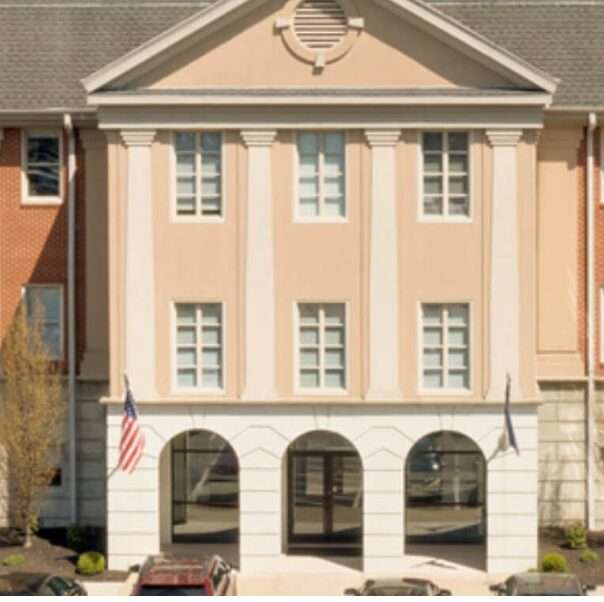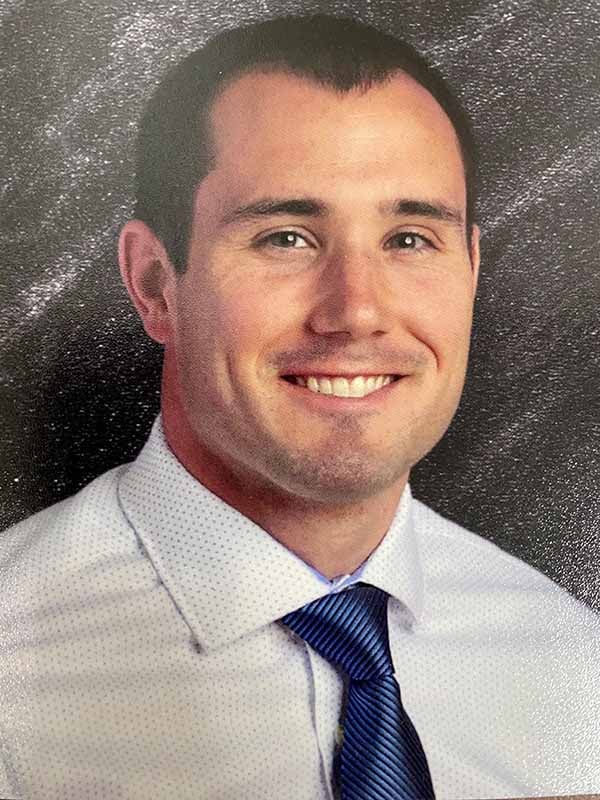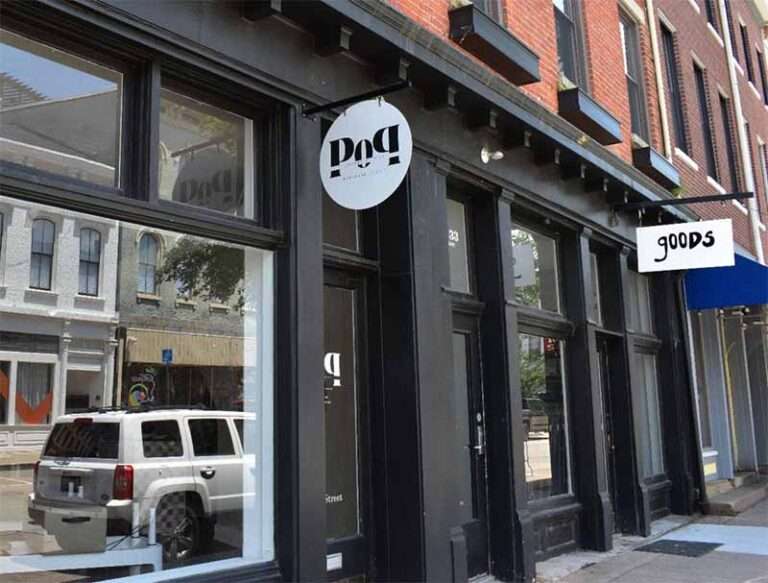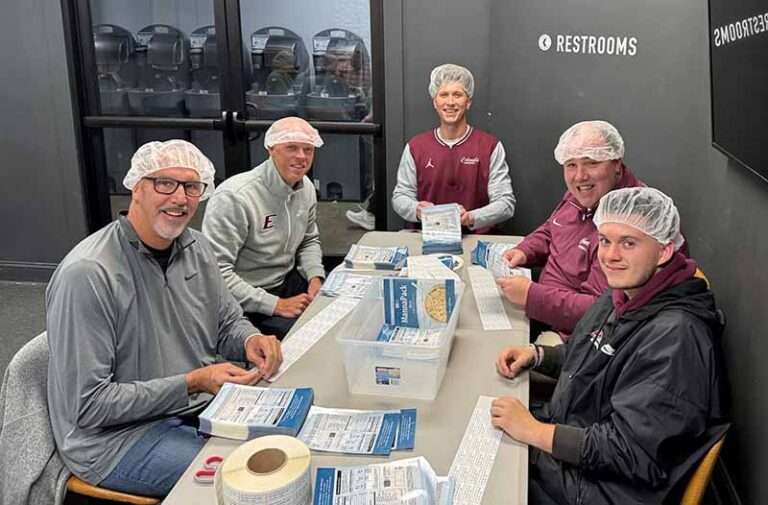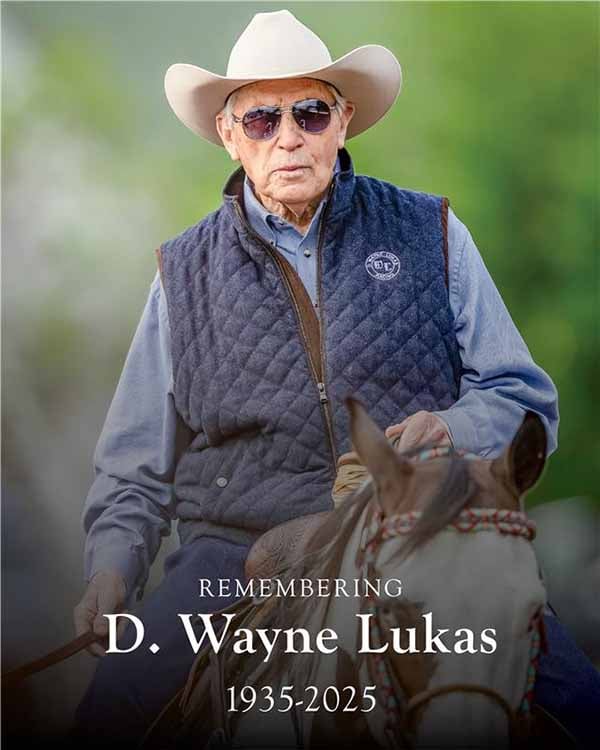
Convincing capricious half-ton racehorses to do your will can take a toll on the human body. The grooms, hotwalkers, exercise riders and other workers who tend to the needs of elite Thoroughbred athletes also carry heavy buckets and bales, endure challenging weather conditions, and often travel with the horses to racing meets around the country, making consistent health care difficult.
For 10 years, the University of Louisville School of Nursing, in partnership with the Kentucky Racing Health and Welfare Fund, has provided free or low-cost health care services to backside workers at the Kentucky Racing Health Services Center, located just across the street from Churchill Downs.
“It started as a safety net. Then it sort of bloomed into more of a primary care center,” said Whitney Nash, associate dean of practice and services at the UofL School of Nursing and the founding director of the center. “We are really the medical home for a large percentage of backside workers.”
“It is a great benefit to be a block away from the racetrack because of the work schedule and the transient nature of the people we serve,” said Richard Riedel, the executive director of the KRHWF. “They can get service at hours that are convenient and also a continuum of care.”
Funded by a grant from the KRHWF, the center is staffed and managed by nurse practitioners who address minor illnesses, provide maintenance treatment for conditions such as diabetes, asthma and hypertension, and conduct routine physicals and screenings. Thanks to recent legislation, these nurses also can independently prescribe most medications. The center is open year-round, with hours on Monday, Wednesday and Friday, and patients usually can schedule appointments for the same day or the next session.

“The racetrack clinic has offered our students a tremendous opportunity to work in the community, expanding their understanding of patient needs and enhancing the welfare of the workers. It has been a wonderful partnership between UofL and the racing community,” said Marcia Hern, dean of the UofL School of Nursing.
UofL nursing students, as well as students in the Latin American and Latino Studies program, gain real-world experience by providing patient care at the center. They are able to assist with translation services for Hispanic workers who speak limited English.
Cristina Bahena, a groom and hotwalker who works at Churchill Downs, uses the center regularly and has brought her two daughters in for care as well. Bahena appreciates the convenient location and the Latino studies students who are able to translate for her during visits.
“I am from Mexico. Sometimes the racetrack people don’t speak English and the students help,” Bahena said. “Some people sleep at the track and don’t have cars. They can go over there because it’s close.”
A decade of building trust
“We are known in the community, the geographic community as well as the racing community, and they really do trust that when they come to see us, any discussions are confidential, whether it is related to health care or their job or whatever,” Nash said.
Riedel said the KRHWF is pleased with the partnership, and the UofL staff have achieved the fund’s mission of a healthier workforce at the racetrack.
“The backside is one big grapevine. If you are not providing good service, it comes out real quick and people are going to avoid coming here,” Riedel said.
The partnership has worked so well that a plan has been approved to expand services to include care by a psychiatric nurse for a 13-month trial period, beginning in July.
Cesar Morales, a stable foreman, has been going to the clinic since it opened.
“Every time I go, they are really friendly and help me out,” he said. “I took someone over there yesterday who was new in town. It’s a really good place for all the people who work on the backside at Churchill Downs.”
Nurse practitioners at the center focus on cost-effective care, not only to preserve center funding, but also for the benefit of the patients. They start with the most efficient medications for the condition, making it easier for patients to keep up their prescriptions even if they leave Louisville.
Horace Chambers, who has been a racehorse groom for 40 years, says the nurses at the center hold him accountable for his health and remind him to come in for regular appointments. “They know you and it is more personal. No question about it, I am healthier.”
“A healthy workforce is going to be so important to the industry. If you have good health care, that’s a reason for an employee (or employer) to come back to Kentucky,” Riedel said.
The students benefit from their experiences at the center as well.
“It’s become a very popular site for internships and volunteer service hours that are required for some of the programs,” Nash said. “Students have an interesting and impactful experience and they share that with their classmates so we get multiple calls for students wanting to come out and work.”
Center hours are Monday and Friday 10:30 – 3:30 p.m. and Wednesday 3-6 pm. It is located in the basement of The Old School at 422 Heywood Avenue, Louisville.
For more information, visit the Kentucky Racing Health and Welfare Fund website.
To donate to the center, contact UofL School of Nursing Director of Development, Jessica Roth, director of development for the UofL School of Nursing, at jessica.roth@louisville.edu.
From UofL







